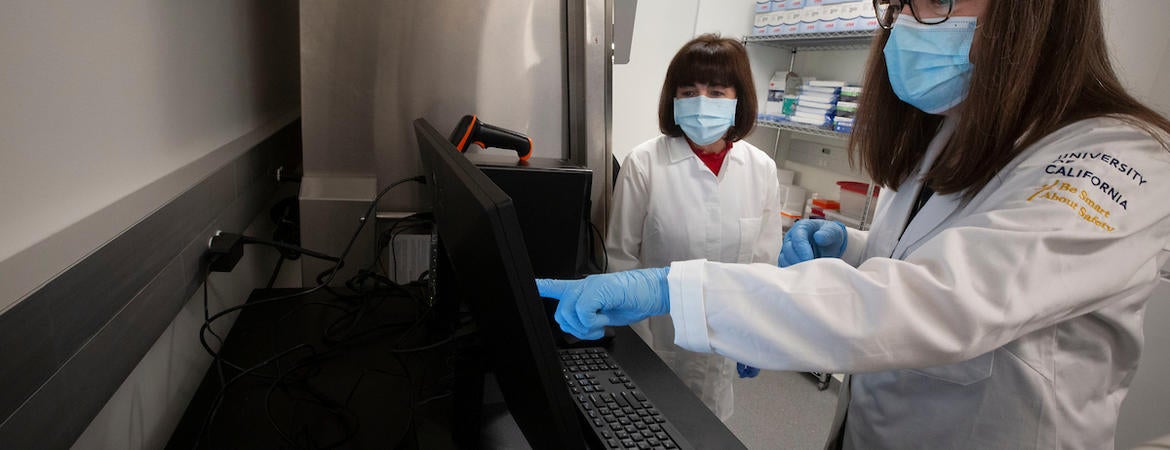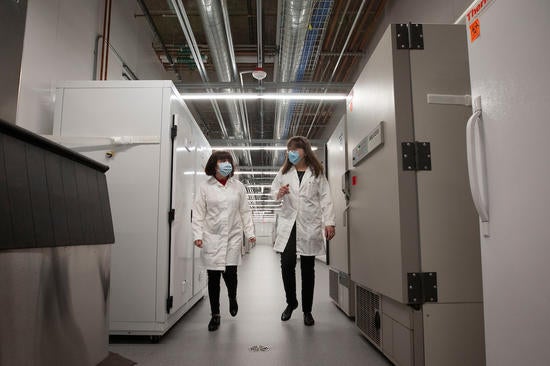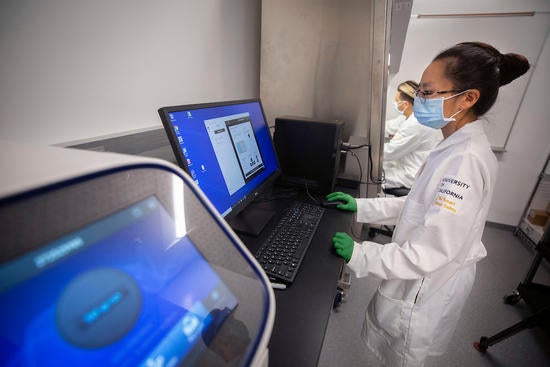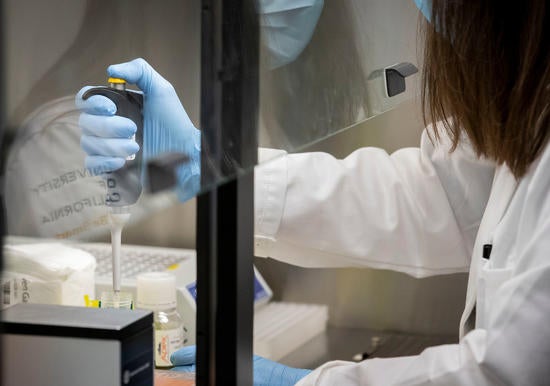UC Riverside’s COVID-19 laboratory has added more space and staff as testing on campus continues to ramp up.
About two months after opening, the diagnostic lab has increased its capacity as part of the campus’s regular coronavirus testing of students in residence halls.
“We’re always trying to streamline and make the process faster,” said Kathy Borkovich, a professor and chair of the Department of Microbiology and Plant Pathology.
She and Isgouhi Kaloshian, a professor and chair of the Department of Nematology, helped lead efforts to create the lab, located on the first floor of the Multidisciplinary Research Building.
Initially, the lab operated out of two small rooms, but last week it expanded to a third room, where a new robot and thermocycler were installed.
The additional space and equipment will allow an increase in samples processed per day, Borkovich said. The lab is now handling up to 400-600 a day but she estimated they can increase that up to 900 a day.
Borkovich, who also runs her own research lab and continues her faculty duties, oversees lab operations. Two lab technicians hired in September, Daniel Raygoza and Sophia Tsau, handle the daily processing of samples.
In the last week, the lab added Logan Collier and Alexander Carrillo, two graduate students from Microbiology and Plant Pathology, to supplement the lab staff.
Matthew Collin, manager of the Institute for Integrative Genomic Biology Genomics Core and project scientist for the Dynamic Genome, checks on the equipment three times a week, making sure the robots are properly calibrated.
In the last week, the lab added two graduate students from the departments of Microbiology and Plant Pathology, to supplement the lab staff and increase sample processing.
The lab has worked closely with UCR Health for limited employee testing and Student Health Services for regular student testing.
Students are tested at least twice a week, going to “spit and go" testing stations at the Bear Cave at Pentland Hills Residence Hall. Saliva samples are collected in plastic pipettes that are delivered in sealed plastic bags and containers to the lab twice a day. Results are typically available within 24 hours.







